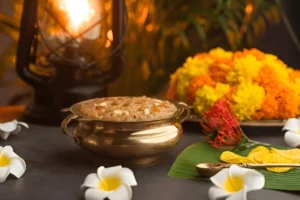India, known for its diversity, celebrates various festivals throughout the year, and January marks the beginning of a significant festive period. Two prominent festivals, Makar Sankranti and Pongal, are celebrated across the country with immense joy and fervor. These festivals signify the transition of the sun and the harvest season, spreading happiness, gratitude, and togetherness among people.
Let’s delve deeper into these festivals, exploring why Makar Sankranti is celebrated, sharing Uttarayan wishes, and learning about the rich traditions behind these occasions.
What is Makar Sankranti?

Makar Sankranti is one of the most auspicious Hindu festivals celebrated in India, marking the sun’s transition into the zodiac sign of Capricorn (Makar). It signifies the end of the winter solstice and the beginning of longer days as the sun moves northward, a phenomenon known as Uttarayan.
This solar event holds deep spiritual and cultural significance and typically falls on January 14th or 15th each year, depending on the sun’s movement. It is a time for joy, hope, and new beginnings, as the harvest season brings abundance and prosperity to farming communities.
Why is Makar Sankranti Celebrated?
The festival is primarily celebrated to honor Surya Dev (the Sun God), who is considered the symbol of light, life, and energy. The sun’s northward journey is believed to bring positivity, growth, and renewal. Here are some key reasons why Makar Sankranti holds great importance:
- Harvest Festival
Makar Sankranti marks the end of the harvest season in India. Farmers celebrate their hard work and offer thanks for the bountiful crops that sustain life. - Spiritual Cleansing
Bathing in holy rivers like the Ganges, Yamuna, or Godavari on this day is considered highly auspicious. It is believed to cleanse sins and pave the way for spiritual enlightenment. - Kite Flying Tradition
One of the most iconic elements of Makar Sankranti is kite flying, especially in Gujarat and Rajasthan. The clear skies and vibrant kites symbolize freedom and joy, bringing people together in a spirit of camaraderie. - Religious Offerings
Devotees offer sesame seeds (til) and jaggery to deities and distribute these sweets among loved ones. This combination is not only delicious but also holds symbolic value, representing unity and goodwill. - Social Harmony
The festival emphasizes the importance of sharing and community bonding. People come together to celebrate through feasts, dances, and prayers.
Pongal: The Festival of Tamil Nadu
While Makar Sankranti is celebrated across India, the southern state of Tamil Nadu observes a similar festival called Pongal. Pongal is a four-day harvest festival dedicated to the Sun God and agricultural prosperity.
The festival’s name is derived from the Tamil word “Pongu,” meaning to boil, referring to the overflowing of rice and milk in a pot, symbolizing abundance. Each day of Pongal has unique customs:
- Bhogi Pongal: The first day is dedicated to discarding old belongings and welcoming new ones, symbolizing renewal.
- Surya Pongal: The second day is the main celebration, where offerings of rice and milk are made to the Sun God.
- Mattu Pongal: The third day honors cattle, as they play a vital role in farming.
- Kaanum Pongal: The final day is for family reunions and social gatherings.
Pongal is celebrated with traditional music, folk dances, and mouthwatering dishes like sweet Pongal, vadas, and payasam.
Uttarayan Wishes and Sankranti Greetings
The term Uttarayan holds special significance as it marks the sun’s northward movement, symbolizing positivity and prosperity. During this period, people exchange heartfelt wishes and greetings with their loved ones. Here are some meaningful ways to express Sankranti greetings:
- “May this Makar Sankranti bring happiness, prosperity, and good health to you and your family.”
- “Let this Uttarayan fill your life with sunshine and positivity. Happy Makar Sankranti!”
- “Wishing you a harvest of happiness and success this Sankranti. Stay blessed!”
- “On this joyous occasion, may your life be as colorful as the kites in the sky. Happy Makar Sankranti!”
In addition to greetings, people share delicious treats made from sesame seeds, jaggery, and rice. These sweets represent togetherness and the sweetness of relationships.
Today’s Festivals in India: A Melange of Traditions
January 14th is a day of multiple celebrations across India, reflecting the country’s cultural richness:
- Lohri in Punjab: A harvest festival celebrated with bonfires, folk songs, and dance.
- Magh Bihu in Assam: Known as Bhogali Bihu, this festival includes feasting, traditional games, and community bonfires.
- Makar Sankranti in North India: Celebrated with kite flying, fairs, and holy dips in rivers.
- Pongal in Tamil Nadu: A four-day festival of thanksgiving and abundance.
Each region has its unique way of celebrating, but the core values of gratitude, joy, and togetherness remain constant.
Traditional Delicacies of Makar Sankranti and Pongal
No Indian festival is complete without a variety of mouthwatering dishes. Here are some traditional treats enjoyed during these festivals:
- Tilgul Ladoo: Sesame and jaggery sweets shared as a token of goodwill.
- Sweet Pongal: A delightful rice and jaggery dish cooked in milk, offered to deities in Tamil Nadu.
- Puran Poli: A flatbread stuffed with sweet lentil filling, popular in Maharashtra.
- Chikki: Peanut and jaggery brittle, a favorite snack during this season.
These dishes not only satisfy taste buds but also reflect the cultural essence of the festivals.
Conclusion
Makar Sankranti and Pongal are not just festivals; they are celebrations of life, gratitude, and community. They remind us of the importance of nature, hard work, and spiritual growth. As the sun begins its northward journey, it brings hope and positivity to millions.
Whether it’s flying kites, sharing sweets, or sending warm wishes, these festivals offer a beautiful way to connect with loved ones and cherish the blessings of life. This year, let’s celebrate Makar Sankranti and Pongal with joy and gratitude, spreading happiness and unity wherever we go.
Happy Makar Sankranti and Pongal to all!
Visit – Homepage
